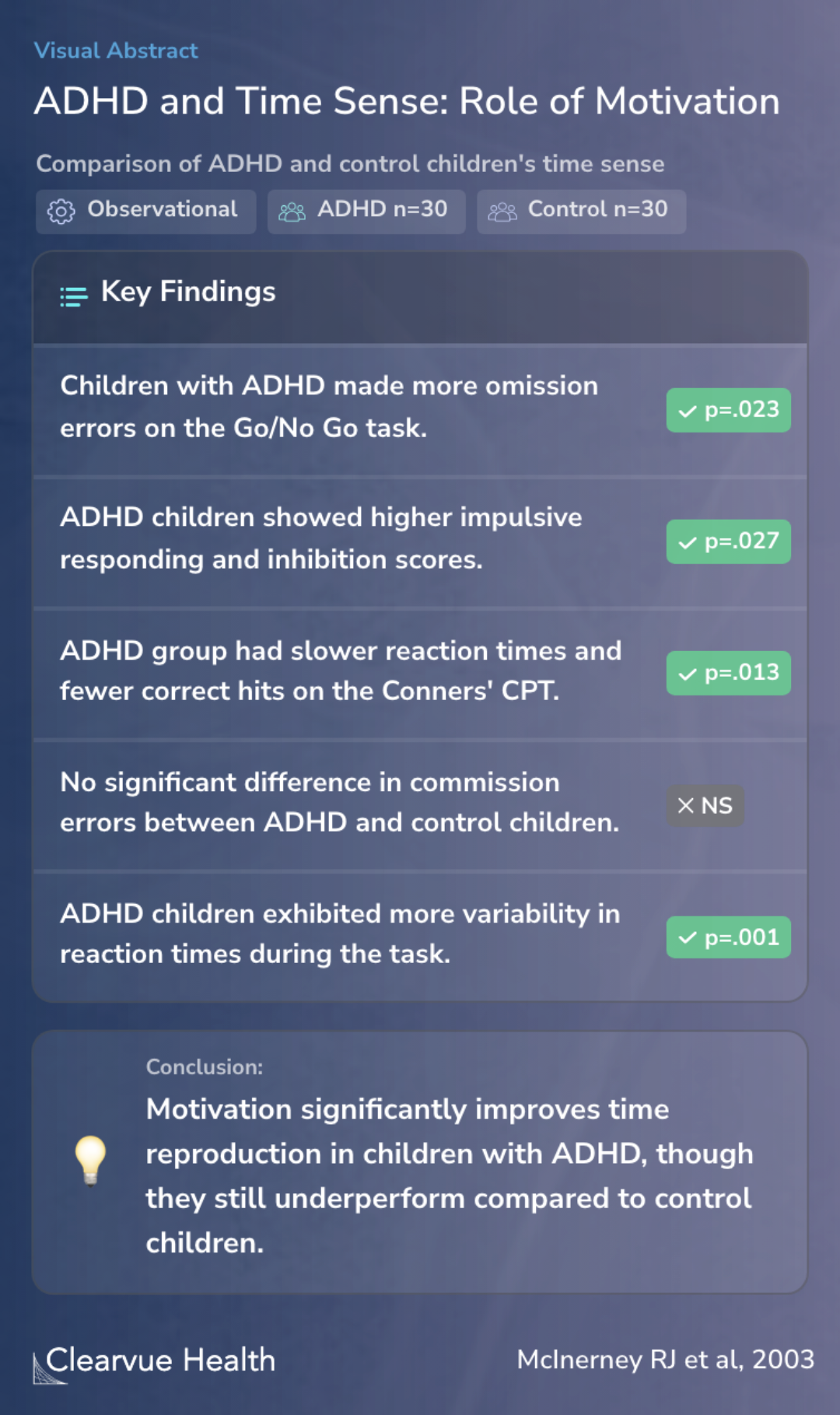Time reproduction in children with ADHD: motivation matters
ADHD and Time Sense: Role of Motivation
McInerney RJ, Kerns KA

Objectives
This study explores whether children with ADHD have a genuine difficulty in perceiving time or if their challenges are more related to a lack of motivation. This inquiry builds on previous research that linked ADHD with time perception issues but introduces a new angle by examining the role of motivation.
The primary goal of this study was to examine whether children with ADHD have a true deficit in subjective time sense, or whether their impairment reflects a motivational deficit.
Methods
The study involved two groups of children: 30 with ADHD and 30 without. They participated in a special time reproduction task, conducted in two versions - Regular and Enhanced. The Enhanced version was designed to boost motivation using positive feedback and the opportunity to earn rewards. This approach aimed to see if increasing motivation would affect how well children with ADHD could judge and replicate time intervals. The study also looked at how these children performed in tasks related to working memory and behavioral control.
Thirty children with ADHD and 30 matched control children completed two versions of a time reproduction paradigm ("Regular" and "Enhanced") in which motivational level was manipulated by the addition of positive sham feedback and the prospect of earning a reward. A secondary goal was to ...
Results
In the study, children with ADHD performed significantly better in the 'Enhanced' version of the time reproduction task, where motivation was a key factor, compared to the Regular version.
However, they still underperformed compared to the control group in both tasks. The control children showed no significant change in performance between the two versions of the task. Notably, significant differences were also observed in tasks measuring working memory and behavioral inhibition among the ADHD group.
Children with ADHD performed significantly better on the motivating 'Enhanced' versus the Regular time reproduction paradigm, although they continued to perform significantly worse than controls on both tasks. Control children exhibited no reliable change in performance between versions ...
Conclusions
Motivation significantly improves time reproduction in children with ADHD, though they still underperform compared to control children. This finding highlights the impact of motivation, alongside working memory and behavioural inhibition, on time reproduction performance in children with ADHD. This study contributes to a broader understanding of ADHD's cognitive effects and the factors influencing them.
We discuss the impact of motivation, working memory, and behavioural inhibition on time reproduction performance.
Context
This study's findings align with broader research exploring ADHD's cognitive traits. For instance, a 2007 study by Andreou et al. highlighted how reaction time variability, a key aspect of ADHD, improves under fast-incentive conditions and showed a strong familial component. This suggests that, like time perception discrepancies, reaction time variability in ADHD can be influenced by motivational factors and may have genetic underpinnings.
Similarly, a 2003 study by Meaux et al. compared time perception in children with and without ADHD, finding significant differences. This further corroborates the idea that ADHD impacts how children perceive and estimate time, a concept also evident in the current study focusing on the role of motivation in time perception among children with ADHD.